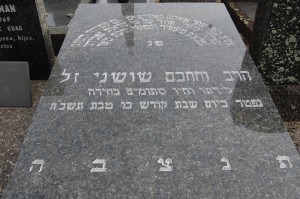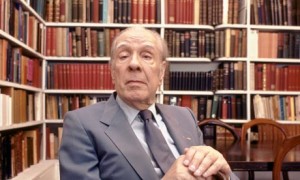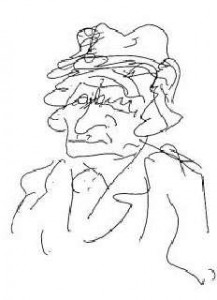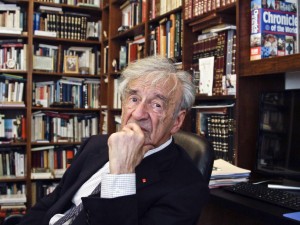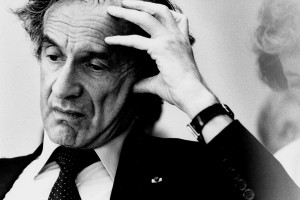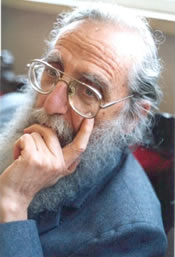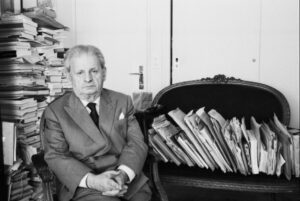A beautiful mind: The mysterious Jewish genius whose riddle saved him
Filmmaker Michael Grynszpan is trying to unravel the enigma named Chouchan, an indigent wanderer and scholar of Torah and other subjects, whose full name and biography are still unknown 45 years after his death.
 |
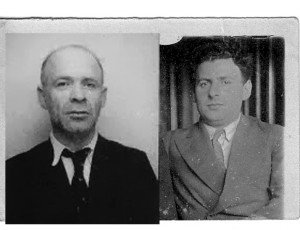
Sixty-one years ago, on October 16, 1952, a somewhat peculiar article appeared in the daily Maariv under the heading “Faces on the ship.” The reporter, David Giladi, Yair Lapid’s maternal grandfather, described a group of passengers on their way to Israel from France. “There were many important people onboard the ship, professors and judges, consuls and envoys, but the most popular figure was that Jew named Ben-Chouchan,” he wrote.
This Ben-Chouchan spent his nights on a bench on the upper deck of the ship, bundled up in his coat against the night chill. “The man is unkempt in his outward appearance, dressed in rags, and at first glance you would not give a penny for him,” Giladi wrote. But those who got to know Ben-Chouchan noticed at once that he was no ordinary man. “This is a Torah scholar, the likes of which there are not many, who swims like a champion swimmer in the sea of the Talmud, the midrashim, the earliest and later [biblical] commentators and external sciences,” added Giladi. “His knowledge flows like a fountainhead, and his strange midrashim astound the ears and hearts of his listeners, and his speech is fluent in multiple languages. And if an erudite person is said to be a ‘prodigy,’ then such a one is said to be a ‘genius.’”
Who was that mysterious Jew aboard the ship? What was his full name, where did he come from and where did he go? In the 45 years since his death, in Uruguay, many have wondered about him and tried to crack the riddle of the mysterious figure who was so full of contradictions − a brilliant Jew who knew the Bible, the Talmud and “The Guide for the Perplexed,” by heart, who grasped nuclear physics and solved mathematical mysteries, who lived like a vagabond, beggar and ascetic, but was actually wealthy, and whose money to this day is apparently used to help the indigent, as well as yeshiva students.
His death in Uruguay in 1968 left a great many open questions − but also countless enthusiastic devotees of his teachings, among them intellectuals and scientists, professors and well-known scholars from Israel and elsewhere in the world, who had been his disciples. Among them were Hebrew University professor of Jewish philosophy Shalom Rosenberg and Holocaust survivor Elie Wiesel and renowned philosopher Emmanuel Levinas.
“People who met him talk about him as if he were the prophet Elijah. Some say he was an angel, others − a devil. But nobody remained indifferent. This strange Jewish genius became a legend,” explained Tel Aviv-based filmmaker Michael Grynszpan last week. Grynszpan has devoted the past few months to exhaustive and cross-continental research into the man he refers to simply as “Mr. Chouchani” (also spelled “Shushani” in some sources), which will be presented in a new, as-yet untitled film. “As far as I’m concerned, he is the puzzle of the 20th century,” he added.
Grynszpan has set up a website and Facebook page to help him make contact with any people who may have known or heard of the subject of his film. Armed with a camera, the filmmaker has been collecting testimonies about his enigmatic persona.
Twelve years after the article appeared in Maariv, in 1964, the mass-circulation Yedioth Ahronoth also reported on the mysterious Jew. Elie Wiesel, who then wrote for the newspaper, published an article in 1964 under the headline “The rabbi − a modern legend,” in which he wrote: “Nobody knew his name, or how old he was. Perhaps he had no name. Perhaps he had no age. He lacked all of those qualities by which a man is defined as belonging to a certain group.”
Adding to the puzzlement surrounding him, “Mr. Chouchan” was apparently in the habit of vanishing and popping up, each time in a new place. Wiesel wrote: “Suddenly he would appear, and then vanish a month or a year later, without leaving a trace. He would accidentally be discovered on the other side of a border … A businessman, a prophet who was dispatched, quite a number of times he went around the world without money, without papers, no one knew how.” Wiesel, too, described the man’s shabby appearance: “He was always filthy, unkempt and dressed in rags. He resembled a vagabond-turned-clown.”
Wiesel had previously met up with Mr. Chouchan on and off for about three years, after the war, after making an initial acquaintance at a small synagogue in Paris. He wrote in the Yedioth article that Chouchan “knew everything, but always lived in the shadows. He read all the books, penetrated all the secrets, traversed all the countries. He was at home everywhere and nowhere. Nobody knew where he lived and what he lived off of … He recognized no law, no authority, neither of time nor of place. He always appeared to have arrived from faraway and magical vacations.”
From the articles and testimonies Grynszpan has amassed, and some archival research, the following picture emerges: The wise mysterious Jew in question was born around the beginning of the 20th century, some say in Lithuania and others say in North Africa. His full, real name is unknown. Some say it was “Hillel Perlmann” − a disciple of Rabbi Abraham Isaac Kook; others believe his name was Mordechai Rosenbaum; many refer to him as “Mr. Chouchan,” or simply “Chouchani.”
He apparently survived the Holocaust thanks to his sharpness and courage. There is one story about him being arrested by the Germans and taken for interrogation by the Gestapo. In his interrogation he claimed to be Aryan, a native of the Alsace region, a professor of mathematics at the University of Strasbourg. The interrogating officer, sneering at the sight of the beggar with airs of being a professor, said to Chouchan, according to the stories: “You have made a grave mistake. In civilian life I myself was a professor of mathematics.”
Chouchan, so the story goes, suggested making a deal with the devil, with the Nazi officer: He would present the officer with a tough mathematical riddle, and if the officer solved it − he would execute Chouchan. If he failed, he would have to let the man go free. A short while later, Chouchan was released, and he escaped to Switzerland after making a difficult journey.
According to another story, he was arrested by the Nazis in Paris and forced to undress. When they saw he was circumcised, he told them he was a Muslim. Then he amazed all present by reciting parts of the Koran perfectly − to the point where an imam who was brought in by the Germans confirmed that the detainee was indeed Muslim.
After the Holocaust, according to the research, he began to wander the globe, acquiring numerous students and admirers on various continents. He died 45 years ago, and his gravestone in Montevideo reads: “The wise Rabbi Chouchani of blessed memory. His birth and his life are sealed in enigma.”
Hebrew University’s Rosenberg was asked recently in an interview with the history magazine Segula which spiritual figure from the past most impressed him. The answer was unequivocal: “Mr. Chouchani, who is also called Prof. Chouchani.” Rosenberg said that Chouchani’s name had been tied to “a lot of legends, none of which I believed [at first], and after meeting him I said that any person who tells me that what has been said about him is not possible or that it’s a myth − that person does not understand his greatness.”
Meanwhile, Grynszpan is continuing to search for people with information about Chouchani. “I am midway through [my research] but maybe actually only at the beginning,” says the filmmaker, who has been collecting testimonies in Israel, Canada, the U.S. and France, where he met a 100-year-old woman who studied with the enigmatic scholar. Soon Grynszpan will travel to the final stop in Mr. Chouchan’s life: Uruguay.
“They say he was crazy, insane and inhuman. They say he had a phenomenal photographic memory, for anything. There are so many wild stories about this human being,” he summed up.
